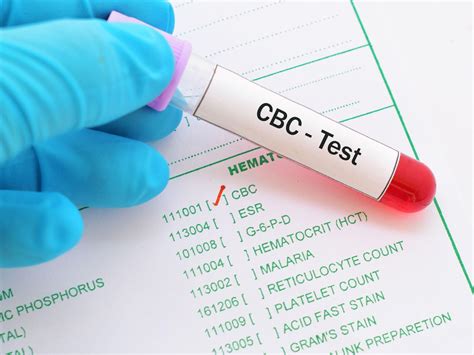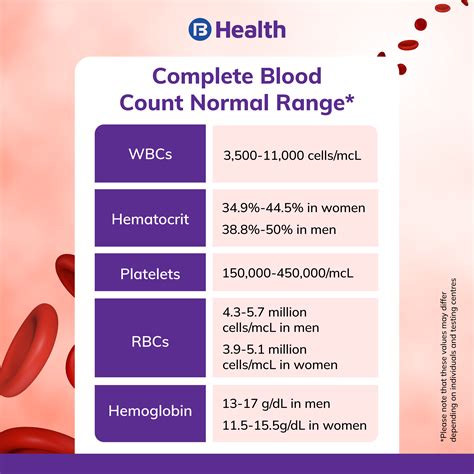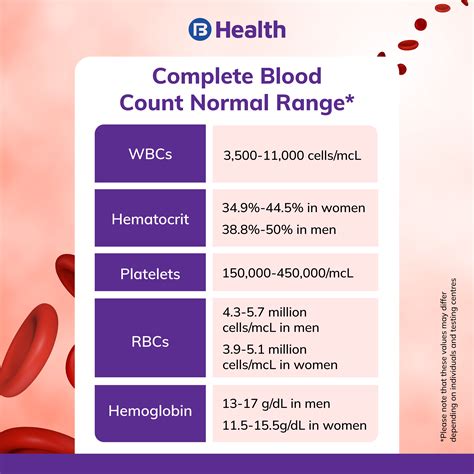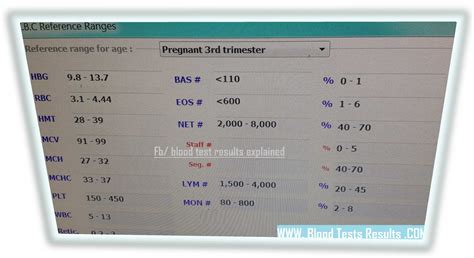Intro
Discover normal CBC values range and understand complete blood count results, including white blood cell, red blood cell, and platelet counts, to diagnose health issues and monitor treatment efficacy.
A complete blood count (CBC) is a common blood test that measures various components of the blood, including red blood cells, white blood cells, and platelets. Understanding the normal CBC values range is essential for interpreting test results and diagnosing various health conditions. In this article, we will delve into the importance of CBC tests, the different components measured, and the normal values range for each component.
The CBC test is a crucial diagnostic tool that provides valuable information about the body's overall health. It is often used to diagnose and monitor various conditions, such as anemia, infection, and blood disorders. The test measures several parameters, including red blood cell count, white blood cell count, platelet count, hemoglobin, hematocrit, and mean corpuscular volume (MCV). Each of these parameters has a specific normal range, and deviations from these ranges can indicate underlying health issues.
The normal CBC values range varies slightly depending on the laboratory and the individual's age, sex, and other factors. However, the following ranges are generally considered normal for adults: red blood cell count (4.32-5.72 million cells per microliter), white blood cell count (3,500-10,500 cells per microliter), platelet count (150,000-450,000 platelets per microliter), hemoglobin (13.5-17.5 grams per deciliter), hematocrit (40.7-50.3%), and MCV (80-100 femtoliters). Understanding these normal ranges is essential for interpreting CBC test results and making informed decisions about health care.
Introduction to CBC Test

Components of CBC Test
The CBC test measures several components of the blood, including: * Red blood cell count (RBC) * White blood cell count (WBC) * Platelet count (PLT) * Hemoglobin (Hb) * Hematocrit (Hct) * Mean corpuscular volume (MCV) Each of these components has a specific normal range, and deviations from these ranges can indicate underlying health issues.Normal CBC Values Range

Interpretation of CBC Test Results
Interpreting CBC test results requires a thorough understanding of the normal values range and the various components measured. Deviations from the normal range can indicate underlying health issues, such as anemia, infection, or blood disorders. For example: * A low red blood cell count (anemia) can indicate iron deficiency, vitamin deficiency, or chronic disease. * A high white blood cell count (leukocytosis) can indicate infection, inflammation, or immune disorders. * A low platelet count (thrombocytopenia) can indicate bleeding disorders, bone marrow disorders, or certain medications.CBC Test and Health Conditions

CBC Test and Age-Related Changes
The normal CBC values range can vary depending on age, sex, and other factors. For example: * Newborns: have a higher red blood cell count and hemoglobin level than adults. * Children: have a higher white blood cell count than adults. * Adults: have a higher platelet count than children. * Older adults: may have a lower red blood cell count, hemoglobin level, and platelet count due to age-related changes.CBC Test and Pregnancy

CBC Test and Nutrition
A healthy diet rich in essential nutrients, such as iron, vitamin B12, and folate, is essential for maintaining normal CBC values. For example: * Iron deficiency: can cause anemia, which can be treated with iron supplements or dietary changes. * Vitamin B12 deficiency: can cause anemia, which can be treated with vitamin B12 supplements or dietary changes. * Folate deficiency: can cause anemia, which can be treated with folate supplements or dietary changes.Conclusion and Future Directions

What is a CBC test?
+A CBC test is a blood test that measures various components of the blood, including red blood cells, white blood cells, and platelets.
What are the normal CBC values range?
+The normal CBC values range varies slightly depending on the laboratory and the individual's age, sex, and other factors. However, the following ranges are generally considered normal for adults: red blood cell count (4.32-5.72 million cells per microliter), white blood cell count (3,500-10,500 cells per microliter), platelet count (150,000-450,000 platelets per microliter), hemoglobin (13.5-17.5 grams per deciliter), hematocrit (40.7-50.3%), and MCV (80-100 femtoliters).
What does a high white blood cell count indicate?
+A high white blood cell count can indicate infection, inflammation, or immune disorders.
We hope this article has provided you with a comprehensive understanding of the normal CBC values range and the importance of the CBC test in diagnosing and monitoring various health conditions. If you have any further questions or concerns, please do not hesitate to comment or share this article with others. Remember to consult with a healthcare professional for personalized advice and treatment.
